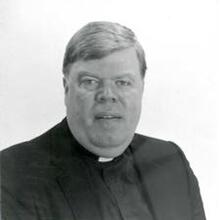A historian once noted that Aristotle’s Nicomachean Ethics is the most commonly taught text in the philosophy classrooms of Jesuit colleges. A member of the great Jesuit Aristotelian procession, I always look forward to teaching the Ethics in my moral philosophy courses. It is a particular joy to gloss Books VIII and IX, where Aristotle presents his theory of friendship.
For Aristotle, friendship comes in three sizes. In the friendship of utility, we exercise good-willed sociability as we engage others in pursuing our own interests. In the friendship of pleasure, affection easily turns erotic as we desire to pursue the other for the romantic ecstasy he or she promises. In authentic friendship, the rarest kind, utilitarian interest and erotic desire recede. We come to love the other for his or her own sake. A bond between the morally and intellectually mature, this authentic friendship helps the partners to grow mutually in the virtues, those hard-won habits of intellect and will necessary for human happiness.
In the Aristotelian perspective, friendship does not confine itself to the private sphere. It constitutes the soul of the political order, enabling citizens to work harmoniously in promoting the common good through laws and actions. The virtues generated by mature friendship free the moral agent to face reversals of fortune with a courage unobtainable elsewhere.
Students react favorably to the Aristotelian portrait of friendship. They often claim, much to the consternation of the faculty, that the friendships made at college are more important than the courses undertaken. But they are also baffled. What does friendship, a private relationship, have to do with politics? Whatever is happening in Washington these days, it is obviously not driven by philia or agape. Moreover, they rarely experience their own friendships as a place for growth in temperance or justice.
The students’ bafflement reflects the broader difficulty of comprehending, let alone promoting authentic friendship in our society, although we vaguely sense its importance. Conferences on ethics routinely feature endless sessions on sexuality, marriage and family life. Panels on friendship are rare.
The church is not free from this blind spot. We are preparing for yet another Synod on the Family. But the celebrated questionnaire preparing the ground for the synod poses no questions concerning friendship inside or outside the family. A synod on friendship would be dismissed as eccentric or a hoax. The current ecclesiastical inattention to the phenomenon of friendship is an odd omission in a church that otherwise prides itself on the Aristotelian pedigree of its ethical doctrine. It is also a costly omission, since it is only in the authentic friendship of the virtuous that we are free to love each other neither as instruments of self-aggrandizement nor as objects of sexual desire but simply for own sakes as rational but fragile creatures in need of encouragement.
When I was a graduate student at Louvain, I often attended services at the Benedictine convent of St. Gertrude. One day I was struck by the feast they were celebrating: Saints Mary, Martha and Lazarus, friends of the Lord. The preacher related the friendship of Jesus for these siblings to the eternal friendship of Father, Son and Holy Spirit in the Trinity.
Unsurprisingly in our sex-drenched culture, a thousand novels and films have reduced the friendship of Jesus with Mary Magdalene and St. John the Apostle to a sexual romp. Chaste friendship built on virtue and the mutual love of God can no longer be easily grasped, let alone esteemed. St. Ignatius Loyola and St. Teresa of Avila counsel their disciples to engage during prayer in conversation with Jesus or the saints “as one friend speaks to another.” But when the simple believer claims that “God is my best friend,” we are quick to pounce on the remark as a cliché of civil religion.
In discovering God as eternal friend, we unearth the mystery of freedom, personal vocation and mutual love God offers us in the covenant. The coolness of the Supreme Being recedes. In discovering other human beings as mature friends, we give the lie to our society’s myth that other people exist only to fulfill our economic or sexual ambition. The path to a truly humane life, one built on virtue, disinterested service and an ungrasping praise of God, is suddenly open.








